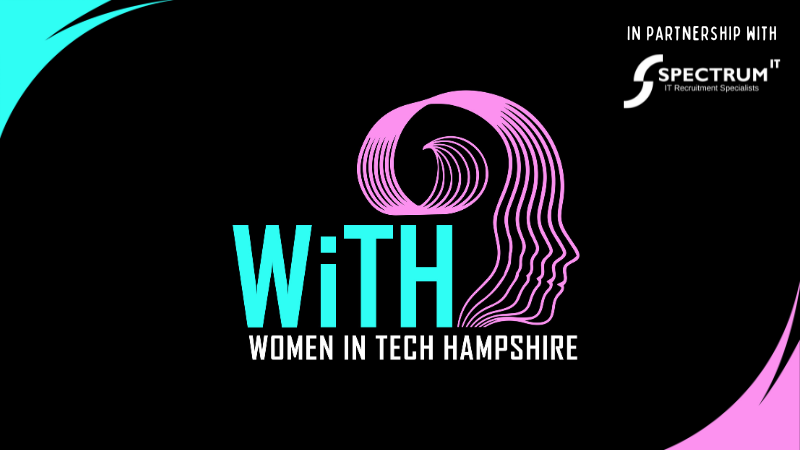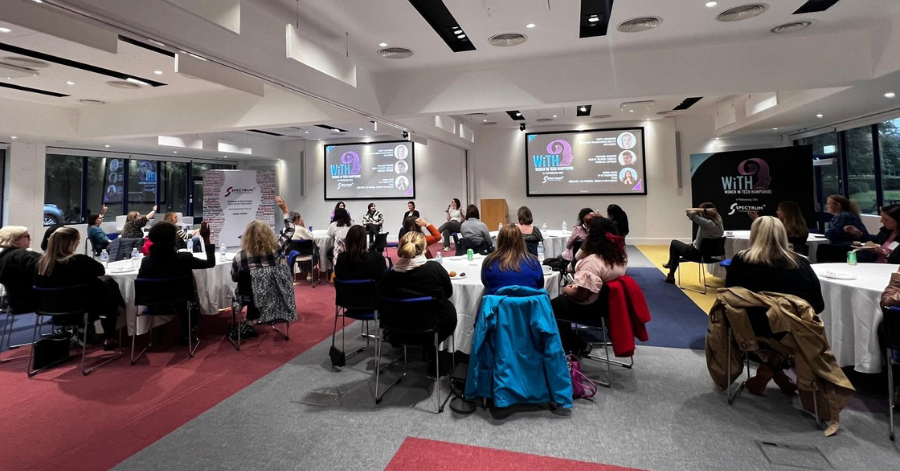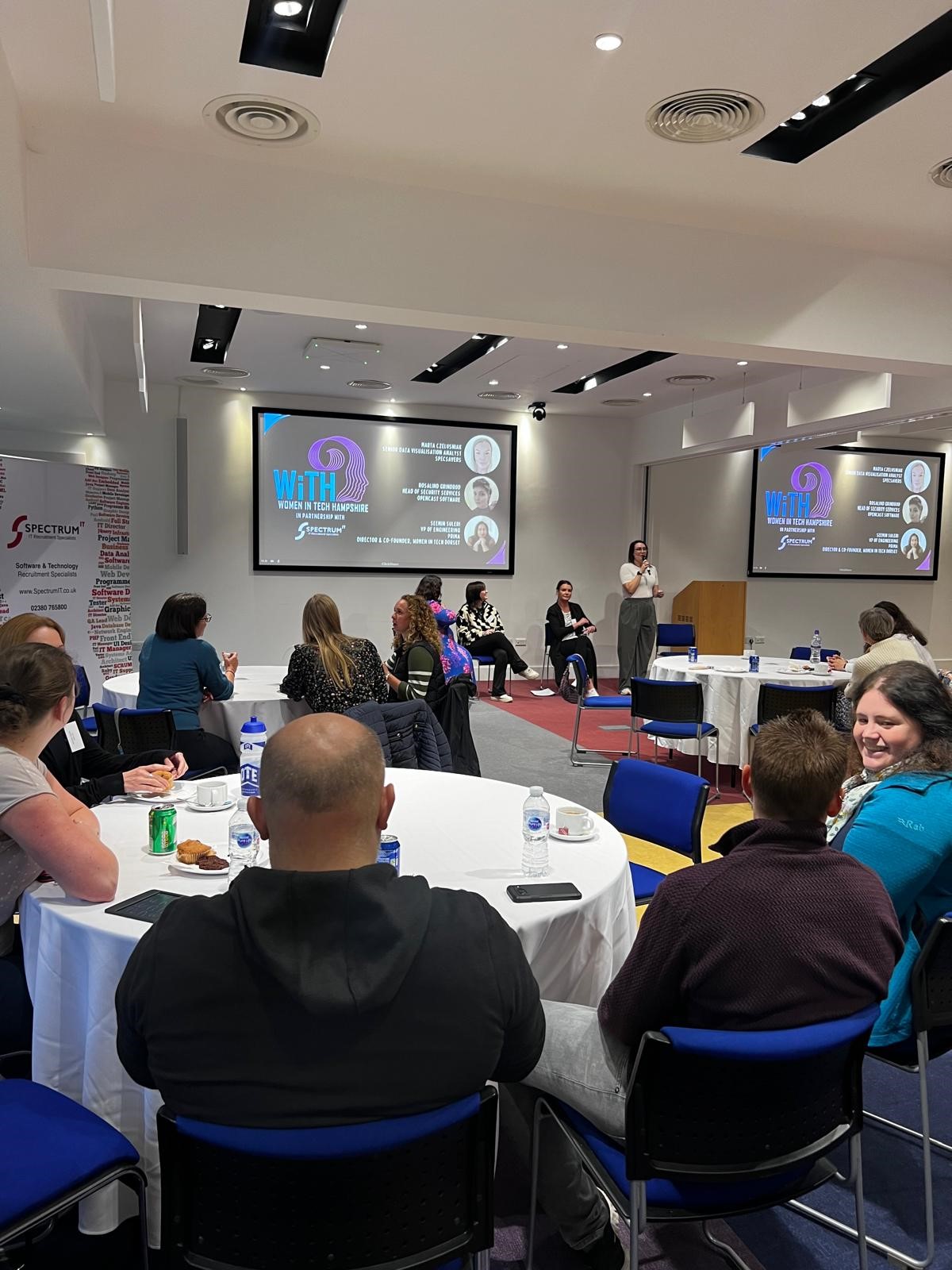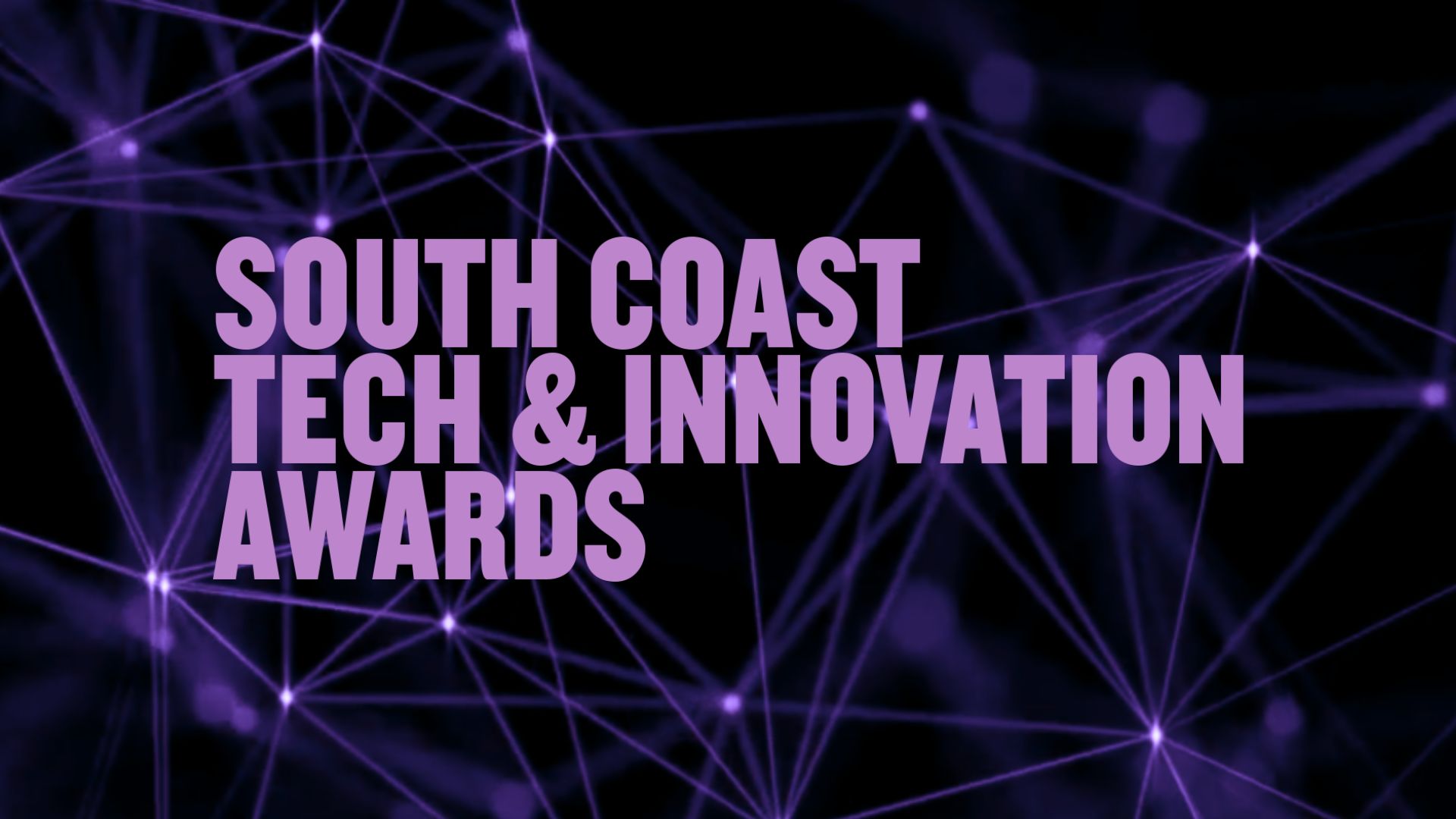
Women in Tech Hampshire - September Event
24 Sept, 20249 minutes
Empowering women in technical roles
Our most recent Women in Tech Hampshire (WiTH) event was another engaging and enthusiastic evening. We wanted to find out more about women in technical roles, how they can be exciting and interesting career choices, and why diverse teams matter.
For this conversation, we brought together three women who are passionate about their own technical professions, and keen to encourage other women to pursue these traditionally more male-dominated positions.
Marta Czelusniak is a Senior Data Visualisation Analyst for Specsavers, with an incredible passion for data. She started as a technician in 2007, working her way up the career ladder in business intelligence and data analysis. Rosalind Grindrod is Head of Security Services at Opencast Software, having found a real interest in cyber security and building a successful career in the sector. Seemin Suleri is VP of Engineering at Prima, as well as a tech transformation leader and public speaker. She is also the co-founder of Women in Tech Dorset.
Changing perceptions
When it comes to technical roles, there are many existing preconceptions and stereotypes around what is involved in the work. Our panel was keen to kick off the discussion by explaining just how fulfilling these positions can be.
For Marta, it’s the constant problem solving that she loves about her role – adding variety and interest to each day. She loves data, and really enjoys the process of being set a challenge with specific requirements and getting to know that data and how to tackle it. In her previous role she was the only female in her team – not an unusual situation at all, judging by a quick ‘show of hands’ straw poll in the room – yet the men on her team made her feel very welcome.
Seemin actively looked for roles that women weren’t doing. After starting out studying to be a programmer, she decided it wasn’t for her – she says she was fed up with “burning her hands” coding at such a fast pace – and looked for a more fulfilling role. She discovered that women were being ignored in the security field, so she took on a role in that sector. She found that she loved the work and was able to make opportunities for herself, keeping the role interesting. Her advice to others is to seek out what interests you because, at the end of the day, “tech is tech”.
Working at a high level in cyber security, Rosalind has also found an area of passion, describing it as both technical and fun. She explains that there is a lot of governance involved in the sector, which can lead to a bit of a divide in what people would class as technical and non-technical.
Diversity in technical roles
Diversity is something that’s often overlooked in the workplace. Rosalind explains that there is a great need for diverse teams, as this helps to bring different ideas and approaches to tasks. When it comes to delivering quality projects, there also needs to be good communication, as well as creating space to drive change to achieve work goals – essentially create the change you want. Achieving these goals with a diverse team in place is important, but it’s not always the case. A diverse team on it's own doesn’t always equal success, and additionally needs the right environment in which to flourish.
Marta works with both men and women in team of five. She says that it’s important to have an open environment in the workplace, so everyone feels free to discuss topics without prejudice. She puts the emphasis on collaborating as a team with an open mind when approaching a job, rather than focusing on a person’s gender. Seemin agrees that when it comes to building a team, it shouldn’t become a “tick box exercise” around inclusion, but to find the best way to manage the workload effectively. When a team isn’t built correctly, it can lead to conflict and it’s then how that conflict is channeled that can lead to success.

This must start from the top level, with companies ensuring that technical projects are inclusive and that capable women are given the opportunity to take up lead roles. Seemin says that in larger corporations, this is a huge responsibility. There needs to be a good balance across the company and within teams, and an understanding of the kind of culture that the company wants to foster. When it comes to onboarding, this means communicating this culture, and ensuring that a person understands the company and how they fit into it. Going forwards, it also means recognising the difference that a person is making in their role, and ensuring they know that. Managers need to help their teams feel valued, something that tends to be of particular importance to women. It’s so important that a workplace is psychologically safe, enabling individuals and teams to thrive, and to be open to a diverse set of ideas.
Rosalind agrees that if someone is good at their role, then companies need to take steps to ensure that they are included and have the chance to show off their skills to create growth within their position and company. This comes down to, “building culture and inclusivity with trust given to the individual to do the job”. Marta agrees, saying, “A person should feel valued and trusted in the projects they are leading”, citing an example of a former manager who gave her the confidence to learn extra skills in a project she ran.
Handling conflict
Unfortunately, being a woman in a technical role doesn’t come without its difficulties and challenges. Sadly, many women still experience conflict with male colleagues, with some of our audience sharing stories that they had experienced or heard about.
It's not always male colleagues either; There are sadly too many female leaders who don’t support fellow women in the workplace. Our attendees had an open discussion where they shared their own experiences, from being made to feel insecure in their roles by other women, to there being a sense of unhealthy competition among female colleagues. We need to move forward from the old thinking of ‘there can only be one’ when it comes to women in tech teams and roles, which will ultimately lead to more acceptance among both male and female colleagues alike.
Advice for the next generation
With so many experiences and skills in the room, we wanted to finish the conversation with advice and inspiration for women who might be considering a new technical role or taking the next step in their career. We asked our panelists what they would say to their younger selves given what they know now in their tech roles.
For Seemin, that would be that the little things make a difference and that anything is possible – aim high! Rosalind would advise being adaptable, have drive, learning whatever you can and being passionate about what you want. Marta would want to change her previous low self-confidence, and says to believe in yourself and do what you love.
One great comment from the floor, that we all need to hear, is not to be scared to put yourself forward; if there’s an opportunity you think you can do, go for it!
Many women in tech roles can find themselves feeling somewhat isolated in the workplace, especially when they find themselves in less diverse teams. Which is why support groups like WiTH play such an important role.
If you’re interested in speaking or learning more about Women in Tech Hampshire, please reach out to Amy Lee and/or Lauren James. Details about upcoming events can be found on the Women in Tech Hampshire LinkedIn page.




